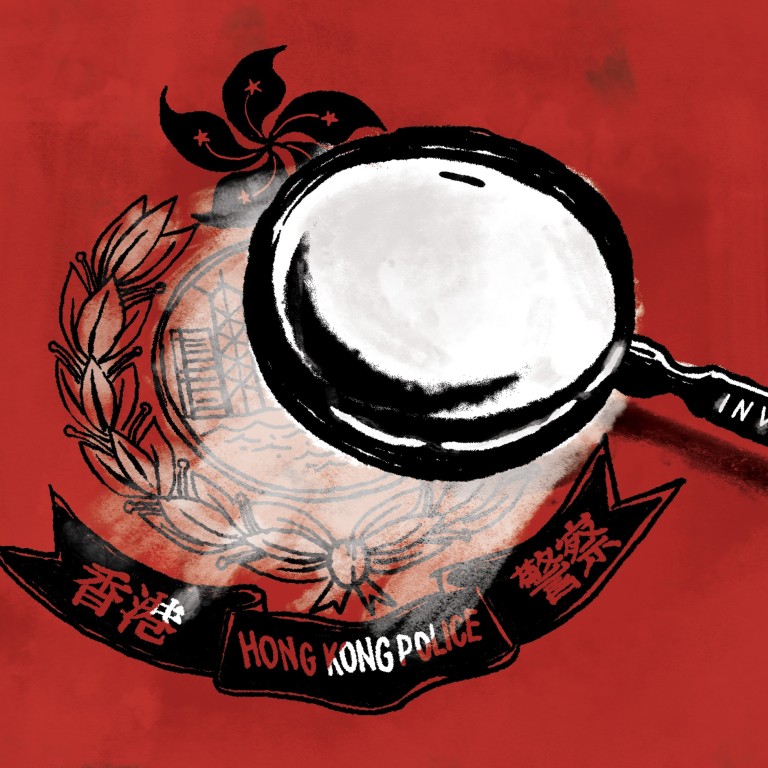
Hong Kong protests: Carrie Lam has ruled out commission of inquiry into police actions, so what can replace it and will it work?
- In a new series of in-depth articles on the unrest rocking Hong Kong, the Post goes behind the headlines to look at the underlying issues, current state of affairs, and where it is all heading
- As Lam accedes to one of the protesters’ demands, we look into other ways the chief executive can quell the violence and whether she can learn from Britain’s London riots or the ‘yellow vests’ in France
On Wednesday, when word leaked that Chief Executive Carrie Lam Cheng Yuet-ngor was about to make an important announcement, political watchers were betting she would tick off two of the five demands of protesters who have been taking to the streets for nearly three months.
Just last week, during a closed-door meeting with 19 of the city’s most influential figures at Government House, she did not reject the option.
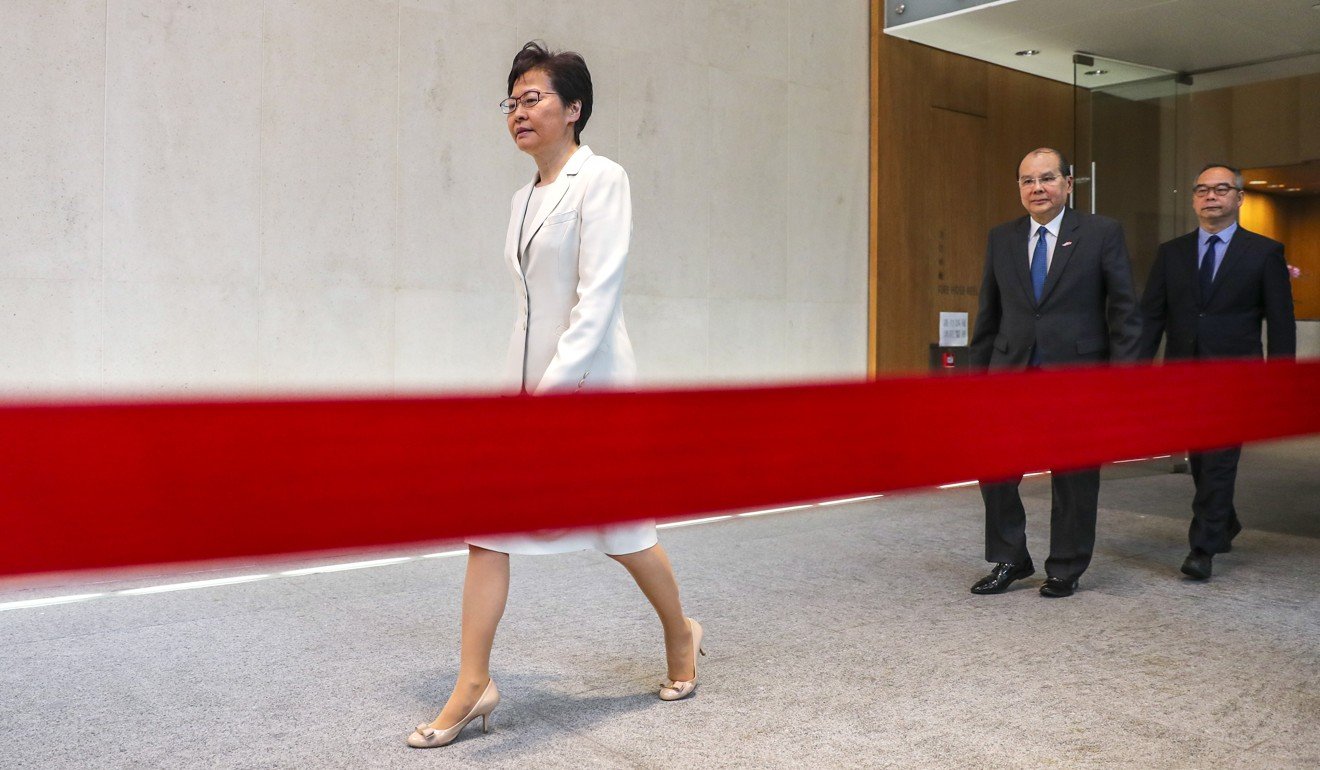
Since June, several heavyweights including religious leaders, former government officials and former chief justice Andrew Li Kwok-nang have added their voices to the protesters’ demand for a judge-led, legally binding independent COI.
The protesters have used the label of “police brutality” to describe the force’s actions in calling for such a probe.
On Wednesday, however, Lam insisted the Independent Police Complaints Council (IPCC) was capable of doing the job.
How does Carrie Lam withdrawing extradition bill differ from earlier suspension?
Pledging her government’s full support for the IPCC, she said the 27-strong team would get two new members – former deputy ombudsman Helen Yu Lai Ching-ping and former Bar Association chairman Paul Lam Ting-kwok. A five-member team of international experts would also advise the IPCC.
But Lam held out two olive branches of sorts. She promised to hold a dialogue and to appoint community leaders and academics to an expert panel to look into the deep-seated ills of society, from income inequality to the lack of housing, social justice and opportunities for young people to be heard in decision-making.
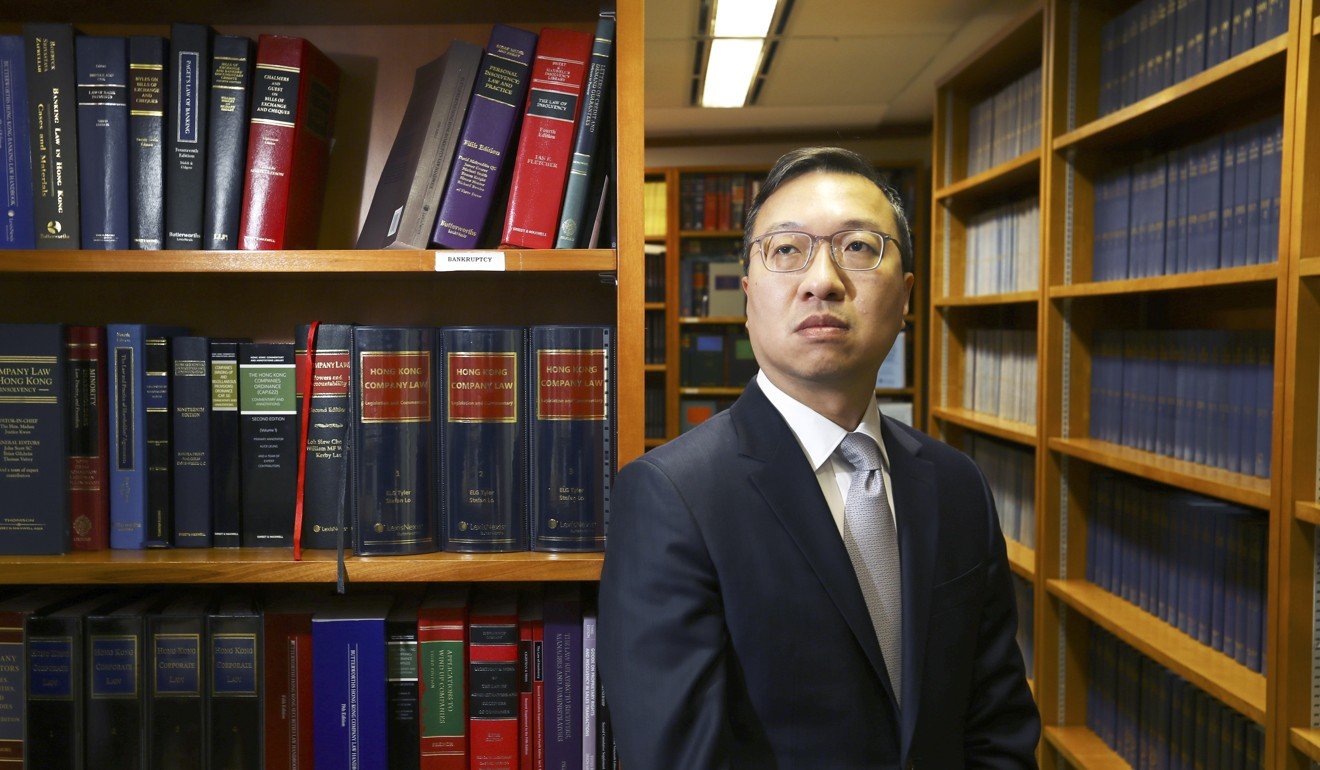
Can the IPCC and these new platforms – which appear to be in the very early stages of being shaped – make up for the lack of a commission of inquiry? Will it appease the vast majority of sympathisers of the protesters that the complaints against police will be dealt with fairly? Will the platforms allow for the venting of grievances that could pave the way for reconciliation in a deeply divided society? Will protesters keep up with their demand for a COI?
The extradition bill crisis, which began after an estimated 1 million people took to the streets on June 9, has transformed into an anti-government movement pressuring the administration to meet its five demands.
Hong Kong leader’s withdrawal of extradition bill draws more scepticism than hope
The bill would have allowed for the transfer of fugitives to jurisdictions with which the city lacks such an arrangement, including mainland China. Critics had warned the bill effectively removed the legal firewall between the city and the mainland, where fair trials are not guaranteed.
Other demands of protesters are: granting amnesty to those who have been arrested, to stop characterising the protests as riots, and to restart the city’s stalled political reform process. Over the past 13 weeks, the protests have continued, with clashes between protesters and police often descending into violence, leading to mass arrests.
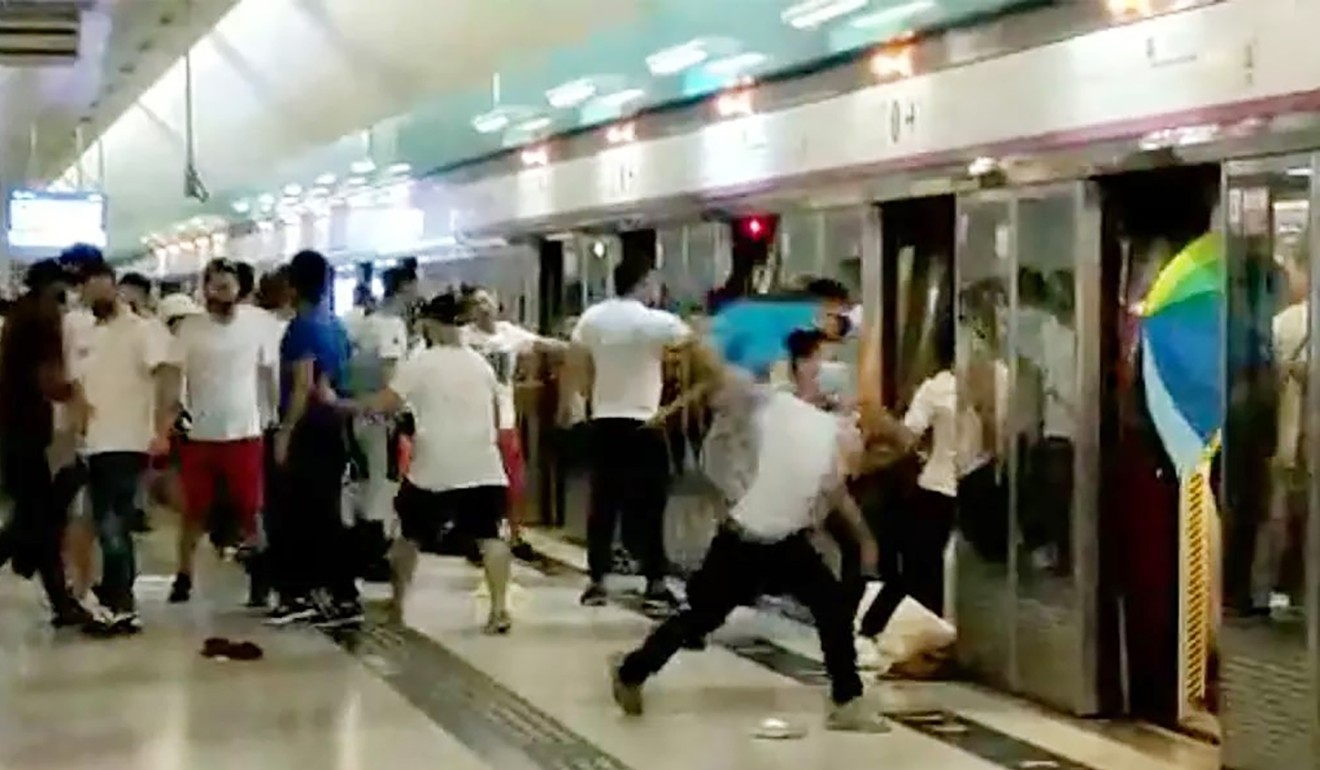
Other incidents have fuelled protesters’ anger. These include the Yuen Long MTR attack on July 21, when a group of men beat up ordinary people and black-clad protesters while police were allegedly late to the rescue.
“Police brutality has to be investigated, as well as what happened on July 21,” said hairstylist Lau Shing-wah, 50, who has been attending peaceful protests without fail.
A key reason for Lam’s refusal for a commission of inquiry has to do with the force. Four police associations have repeatedly expressed strong opposition to it, warning it could damage morale.
Will extradition bill withdrawal appease or embolden Hong Kong protesters?
Yet even as Lam turned down the demand, the Post learned from a political source that since June, her officials have been studying various forms of inquiry panels and reconciliation models used overseas to deal with protest movements, riots and long-running conflicts.
Interviews with sources suggest some of these lessons from elsewhere may be finding their way into Lam’s approach which essentially can be summed up as “IPCC plus” in place of a full-fledged commission.
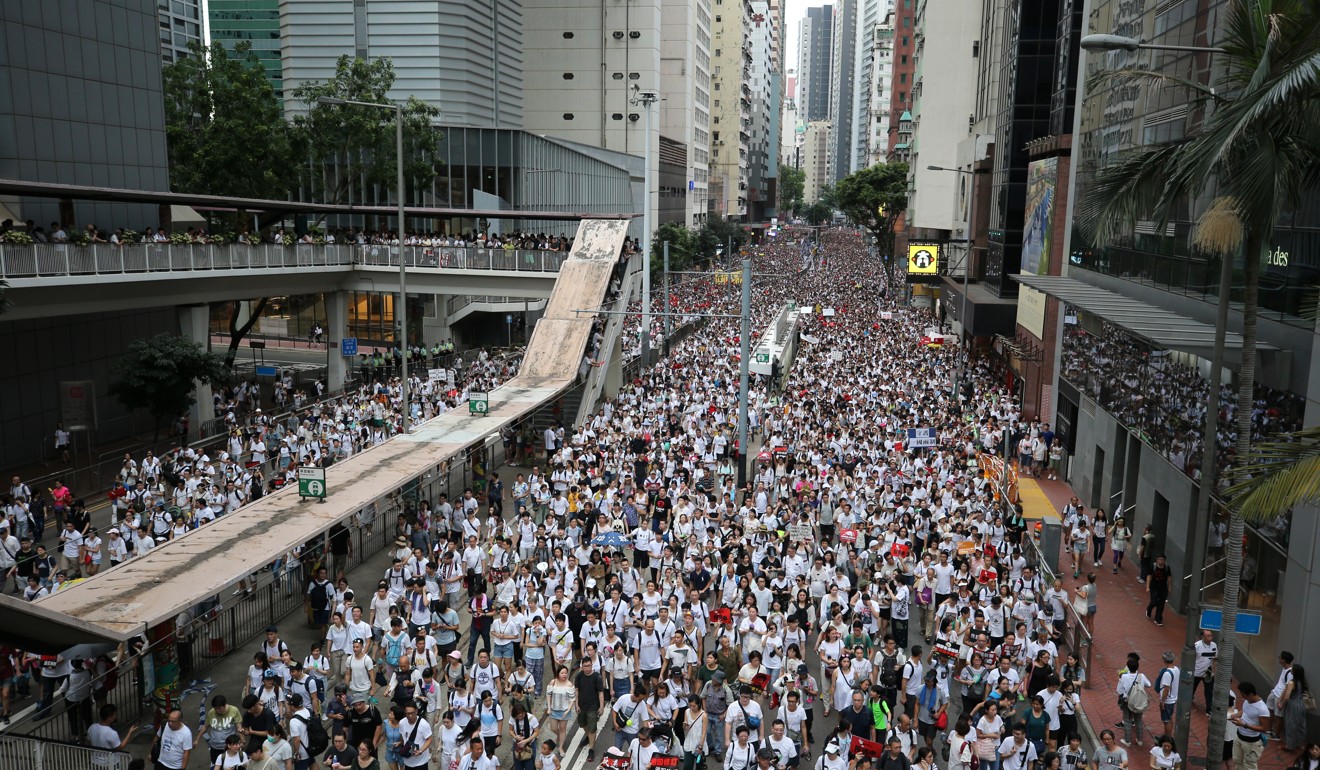
She is now banking on the police watchdog to engage in a systematic review and fact-finding exercise to uncover evidence of police excesses. She has also attempted to strengthen its credibility by hand-picking reliable figures, much like how the British government dealt with its 2011 riots, and roping in international experts who presumably would not go along with any subterfuge just to protect police morale.
To address public grievances, she appears to have melded the approaches taken by the British and French in forging solutions after they faced violent uprisings.
Expert panel to uncover grievances
Lam and her inner circle seem to believe there are lessons to be drawn from Britain’s handling of the 2011 London riots, which saw five days of mayhem after a 29-year-old man was shot dead by police trying to arrest him on suspicion of having a handgun.
She made inquiries about it in July and IPCC chairman Anthony Neoh, who visited Britain to study how the unrest was handled, later briefed her on it.
Critics react to Carrie Lam’s crisis panel: we need solutions, not more studies
Like Lam, pro-Beijing lawmaker Priscilla Leung Mei-fun sees the London riots as a useful reference point.
The riots first flared up in the Tottenham district, then spread to 66 areas, with shops looted and fires started in the streets, where an estimated 13,000 to 15,000 people went on a rampage. Five people died and hundreds lost their businesses and homes. Britain then had its own force and watchdog look into police tactics and strategy. It also set up a community and victims panel and commissioned a study into the underlying causes of the riots where researchers interviewed protesters.
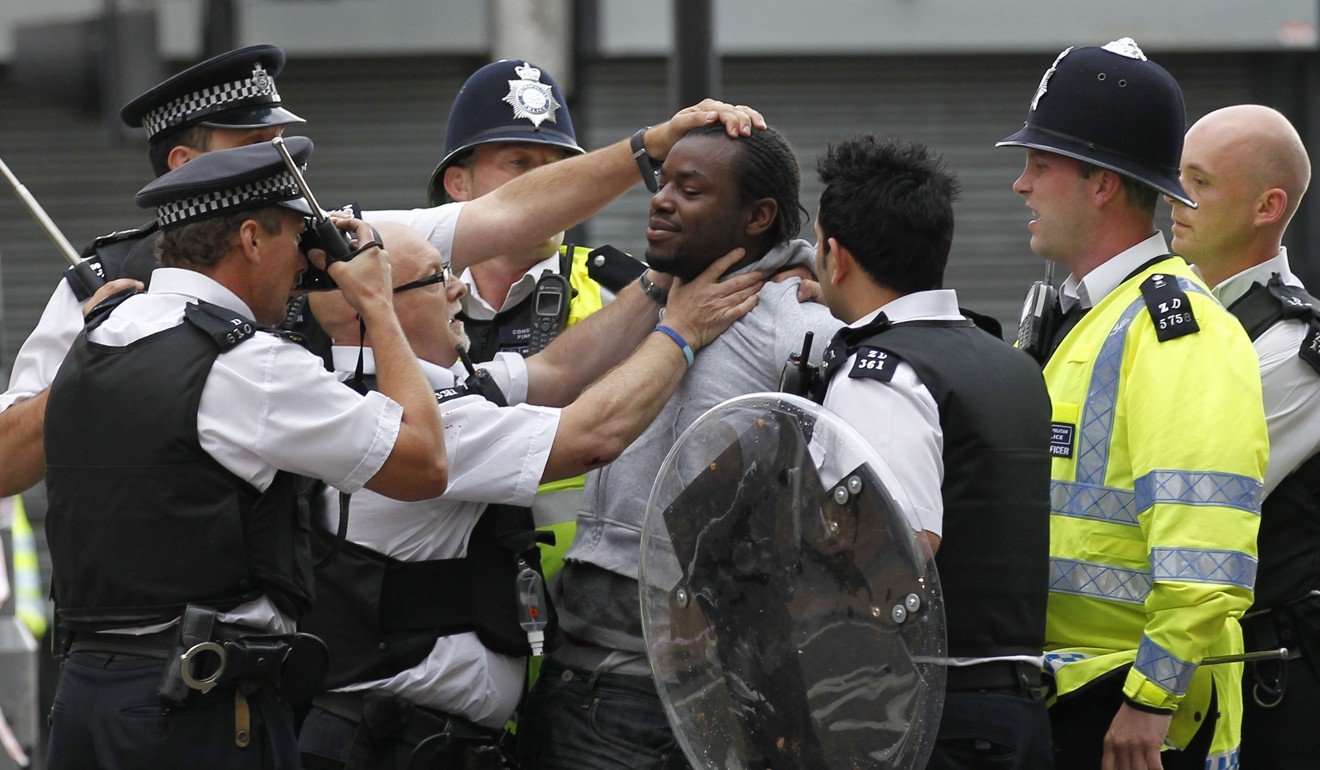
“The reason they didn’t have a royal inquiry was they thought these three things would essentially cover police tactics and operation, but at the same time, they believed there was an urgency to promote reconciliation,” IPCC chairman Neoh said in an earlier interview with the Post.
Leung, a law academic at City University, said having a similar community and victims’ panel could be useful for Hong Kong. The British panel focused on mediation and reconciliation even as it investigated those behind the riots.
“It didn’t have the power to summon witnesses. It was not a statutory body. Yet it had credibility,” she said.
Government insiders reveal why it took Carrie Lam so long to withdraw bill
The panel was not established under Britain’s Inquiries Act, and it was not led by a judge. Instead, the British government dubbed it a “grassroots review” as it studied the causes and possible prevention strategies and how key public agencies ought to deal with communities.
The team collected 340 witness accounts, and sought views via radio, television and online sources. Leung said Hong Kong’s protesters might be more willing to come forward if such a platform was made available to them.
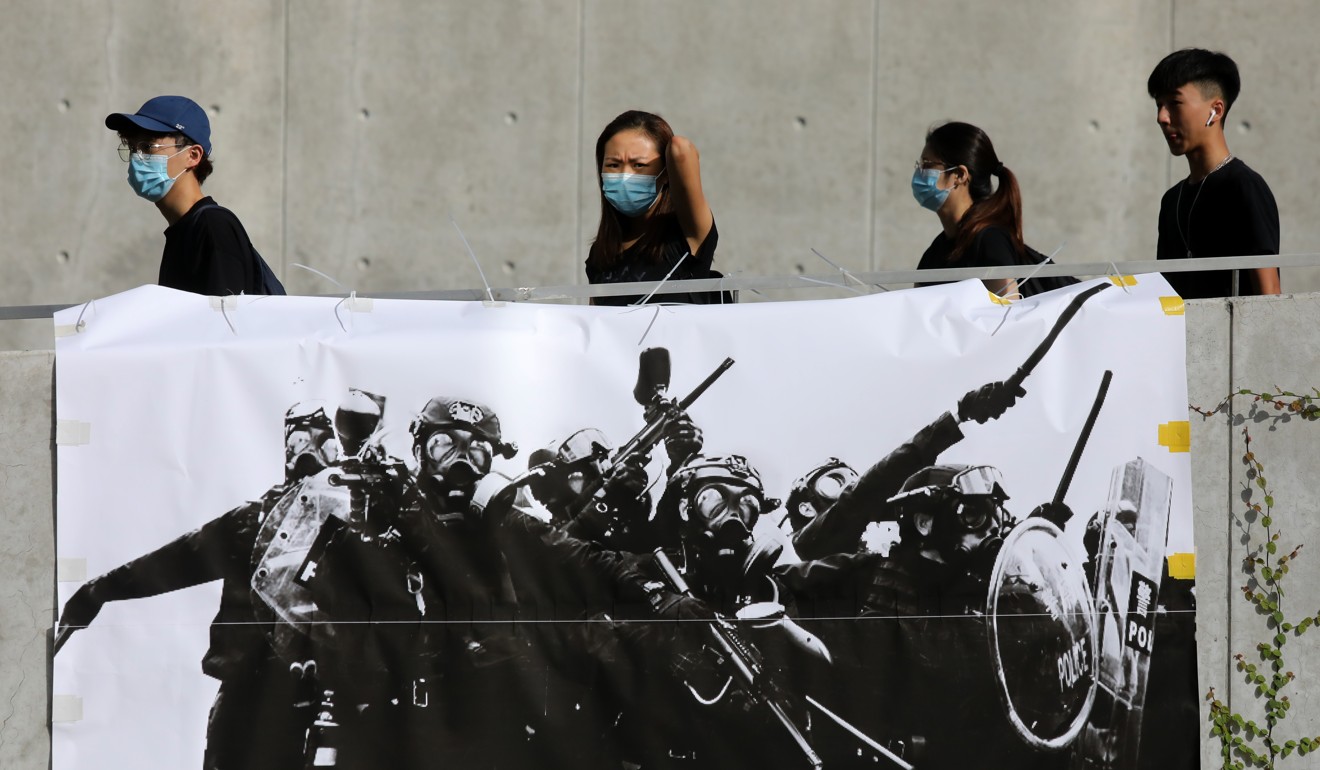
She has submitted this idea to Lam. She feels if Hong Kong has its own version, panel members should be completely non-partisan. “They should be professionals without any political association, definitely not Legislative Council members affiliated to a political party,” she said.
“If the panel requires people with political expertise, they should fall in the region of light yellow or light blue with equal representation,” she added, using the colours that represent political leanings in Hong Kong – yellow for the protesters and the pan-democratic camp, blue for those supporting the government.
Such a panel could be akin to the fourth action item Lam set out in her video message on Wednesday. This is to have “community leaders, professionals and academics independently examine and review society’s deep-seated problems and to advise the government on finding solutions”.
Hong Kong police dismiss claims of train violence and obstructing media
Leung argued the study could hold sessions that go into the airing of grievances but should not be focused on individuals. This way, suggestions to improve police actions would be covered, as well as a critical look at the ills of society.
Agreeing, Professor Stephen Chiu Wing-kai, chair of the department of sociology at Education University, said although the London incidents were a more serious case of rioting, Hong Kong could learn from how the aftermath was handled.
“It focused on understanding the truth,” said Chiu, who has studied and written on the incident.
Bill’s withdrawal ‘is first step’ in getting Hong Kong back to business
Leung feels that based on her experience as a lawmaker, high-profile witnesses whom the panel invited would feel compelled to attend or face recrimination from others if they refused. So the panel could be effective in getting views from a wide cross-section of people.
Lam to do a Macron?
Lam also outlined another action item in her message on Wednesday. She would “reach out to the community to start a direct dialogue”.
“People from all walks of life, with different stances and backgrounds are invited to share their views and air their grievances,” she said.
British MPs step up calls for Hongkongers to be offered right of abode
Lam seems to be taking a leaf from the French experience.
Sources familiar with the matter told the Post that the government had been studying closely the way French authorities handled the “yellow vest” protests last year, as they cited parallels with the events in Paris and in Hong Kong.
Angry about a fuel tax hike, French protesters wearing high-visibility yellow vests took to the iconic Arc de Triomphe in Paris last November. Protesters ended up clashing with police, looting shops and torching cars.
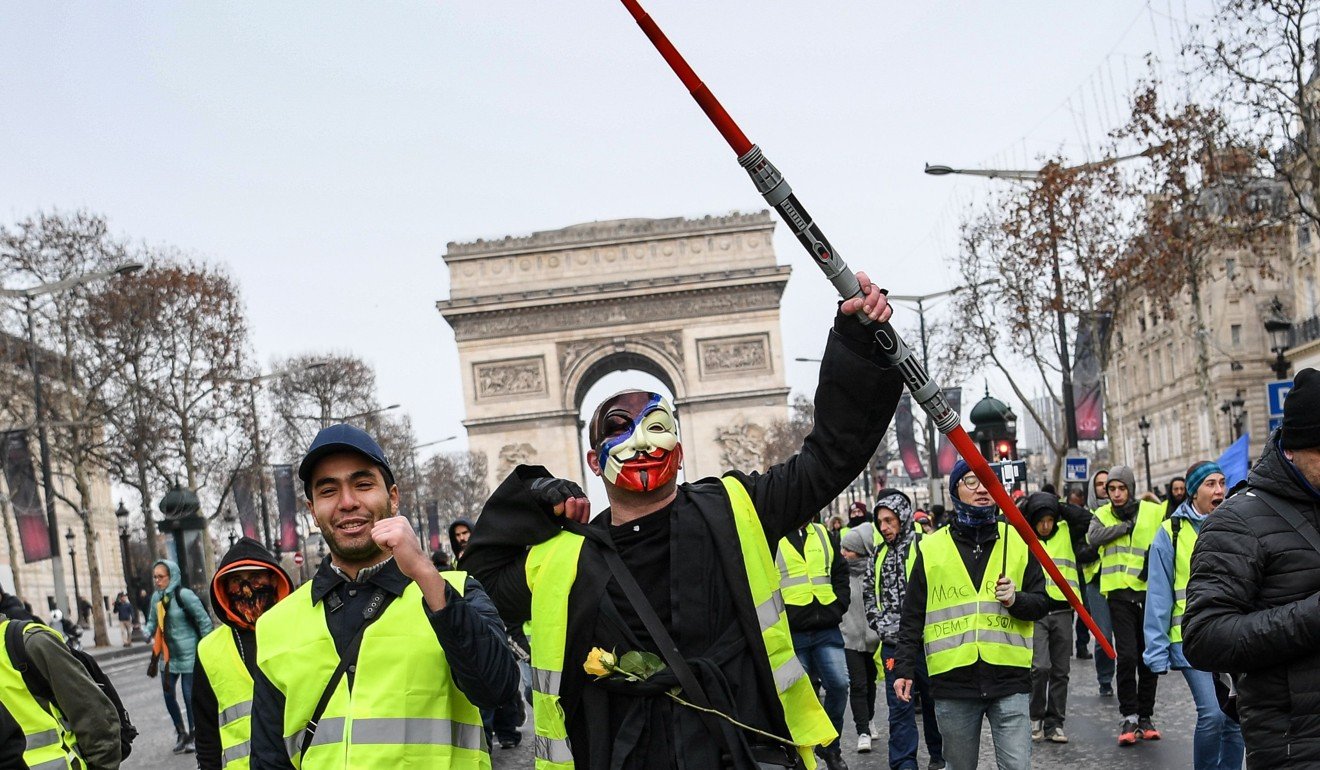
French police fired tear gas and rubber bullets, and ended up facing allegations of excessive use of force. President Emmanuel Macron then came up with the idea of a “Great National Debate”, sending mayors to talk to the people at local town halls.
The three-month campaign succeeded in reducing the numbers taking to the streets and, in the end, Macron promised tax cuts, apologised for unpopular remarks he made, and expressed sympathy with the non-violent protesters. But critics dismissed Macron’s dialogue strategy as little more than a form of diversion.
Can Lam pull off a Macron? Most political watchers are sceptical.
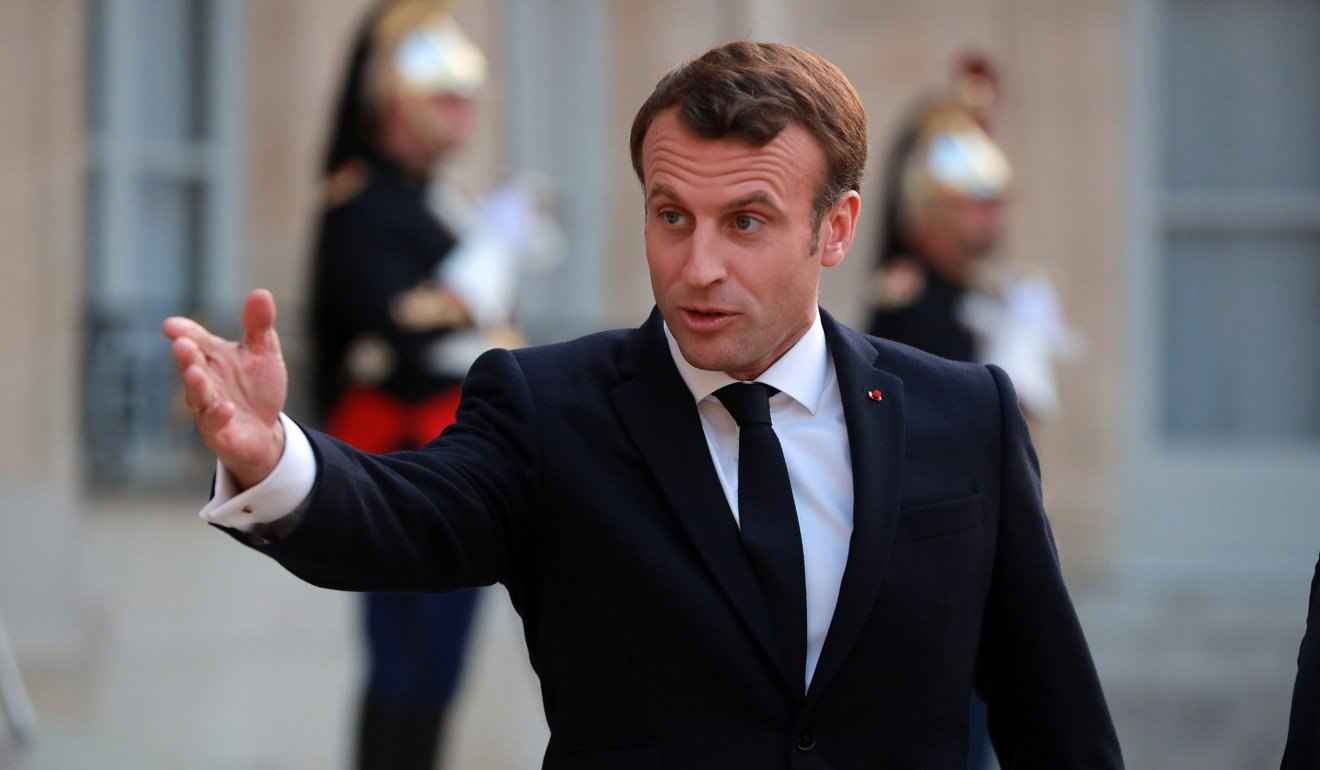
They cite Lam’s own handling of universal retirement coverage back in 2015 where she spearheaded a dialogue that ended up with the government ignoring the wish of the majority. Similarly, during the Occupy protests of 2014, Lam was also the leading official in talks with student activists on universal suffrage and yet the government made no concessions.
There was no point in talking if it led people nowhere, critics said of Lam’s actions.
Similarly, they pointed out that it was Lam that led the city into the current calamity with her disregard for people’s opinion. Can she change that “I-know-best” instinct?
Is Hong Kong leader Carrie Lam the ‘best person to solve problems’?
Another practical difficulty will be whether the dialogue will be mostly with the converted, those already in her camp, or will it make sincere efforts to reach out to those who would never be in the same establishment circle Lam and her coterie inhabit?
“It will be missing the point just to talk with the pro-establishment electorate,” conceded a government source, as there were no guarantees those opposed to the government would come forward.
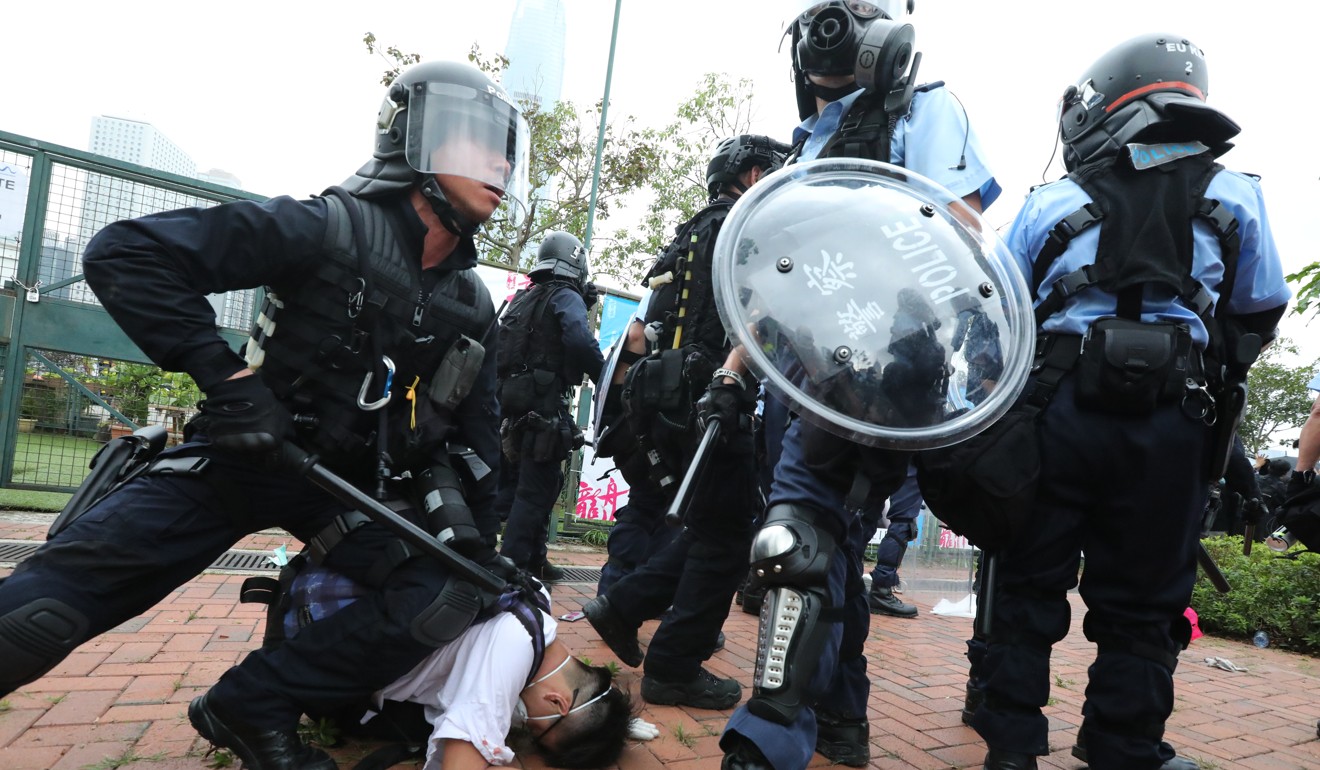
In the case of Macron, he could tap upon his own constituency and mobilise it to spread his message. Lam would have to rely on the pro-establishment camp. That formula has already proven to have its limitations, given the current quagmire the administration is in.
Indeed, before Lam announced this action plan, she already indicated a fortnight ago she was keen on a dialogue.
But Chiu of Education University noted the lukewarm reaction. “There was no response at all from any side,” he said.
Sources told the Post that while the reference point was Macron’s town halls, the government was also studying how the British handled the separatist force, the Irish Republican Army (IRA), as it feared there was a risk the city’s protest movement could develop into a long-running conflict festering for years.
That drawn-out conflict involved deep-rooted problems, including religious and cultural differences, and led to the IRA launching terrorist assaults and bomb attacks in Britain for a good part of the last half-century.
Dialogue was key in resolving the deadlock, said Hong Kong academics and government officials who studied the issue.
“Before the IRA and British government reached the Good Friday agreement, in 1998, there were multiple failed attempts of peace talks when one party or the other pulled out,” a government source said.
He conceded that even as the Hong Kong government hopes to initiate dialogue with citizens, the path ahead will not be smooth.
What was Carrie Lam thinking when she made resignation remarks?
“The government realises that only dialogue can provide a solution to the problem,” he said. “But every time there is aggravation during the protests, police have no choice but to deal with it and it becomes yet another setback.”
While some observers agree studying these overseas examples might be helpful, political scientist Ma Ngok of Chinese University believes the government’s engagement with the people is not happening fast enough. “The longer you delay it, the deeper you fall,” he said.
Steve Tsang, a Hong Kong scholar and director of the China Institute at the University of London’s School of Oriental and African Studies, said sincerity mattered the most.
Explainer: What a Hong Kong protester can expect on being arrested
Being bogged down by how an inquiry or dialogue would be held would be “barking up the wrong tree”, according to Tsang.
Counting on the IPCC
While the two action lines by Lam – the independent study panel and the dialogue – might seem laudable goals, all eyes sooner or later will fall on the work of the IPCC.
It has a mammoth task to investigate the complaints that have come in against police. With each successive week of protests, it will have yet more fact-finding exercises. It has said that it will present its report in phases, dividing up each stage of the protests.
The IPCC cannot replace a commission of inquiry as demanded by protesters because its remit is far narrower even as the latter has its own share of practical difficulties.
Retired Court of Final Appeal judge Henry Litton, for example, has expressed his concern over a commission whose scope would be so huge, given how long the protests have continued, and its findings taking such years to arrive at and how it would in effect replace the government in trying to map the way forward.
Cleaning up after protests leaves unprotected workers exposed to tear gas
Since the handover, Hong Kong has conducted six independent commissions of inquiry, including a probe into a vessel collision off Lamma Island in 2012 which resulted in 39 deaths, and another into excessive lead found in drinking water in public housing estates in 2015.
The most recent looked at shoddy construction work at new MTR stations. All the incidents were very specific in nature. None has been as politically-charged and complex as the present protest crisis.
Despite these limitations, the mood among protesters and critics alike is not to willingly credit the IPCC the same legitimacy as a commission.
For a start, the composition of the panel, made up of several pro-Beijing politicians, has become its Achilles’ heel. Former IPCC member and lawmaker Kenneth Leung accused the panel of being made up of police-friendly figures. “It needs a complete overhaul of composition to regain public trust,” he said.
On Thursday, Lam defended the IPCC: “It is a credible and independent statutory body and everyone I have appointed to the IPCC takes their independence seriously. We should not doubt them.”
The enlistment of overseas experts with experience in handling protests and riots could also mitigate against this alleged weakness of the panel.
China’s internet warriors going to battle over Hong Kong protests
Neoh has also said he was prepared for reports issued by the panel to include minority positions, allowing members to disagree openly and be transparent. He also plans to interview police officers and seek evidence from the force.
The process has been slow and the IPCC has been open in informing the public on this, issuing a press release last month to say that police had not handed over one single video footage to IPCC, although commissioner Stephen Lo Wai-chung had promised the force would cooperate.
Kenneth Leung also feels that without the power to subpoena witnesses or compel officers to give testimony or produce evidence, the IPCC is handicapped.
Rich Hongkongers ‘snap up UK golden visas at unheard-of pace’
Chinese University political scientist Ivan Choy Chi-keung also doubted whether the IPCC could properly replace a commission given these limitations.
But he conceded that people would also look at the findings to assess if the IPCC was fearless in speaking truth to power.
“That would be in the long run, but we are talking about the short term now and there is not much confidence there,” he added.
Well beyond the findings of the IPCC and the dialogue or the independent study, other political watchers also say the government would have to follow through on recommendations. And here, the results from the overseas experience have been mixed. In the case of the British community and victims panel, 63 proposals were made. But then in 2013, research by British MP David Lammy of Tottenham, where the riots originated, found only 11 of the proposals had been implemented.
Stars, luxury brands and China’s perilous patriotic tightrope
If the “IPCC plus” mechanisms that Lam announced this week are to take off, the test would be whether the recommendations would result in real concrete change or end up as talkfest with little implemented and the government’s appetite for reforms continuing to be weak.
For Hongkongers such as financial analyst Ken Cheung, 29, who has been attending peaceful protest marches, the details of the inquiry do not matter as much as whether it would get to the underlying causes of the conflict and provide a path towards real change.
He is also open to probing not just police but also protesters, to see if indeed some of them are getting help from foreign forces. All inquiries, whether by the IPCC or the independent panel or the dialogue must look at both sides, into alleged police abuse of power and into the government’s culpability in creating the current crisis.
Will protests ruin Hong Kong’s role in Greater Bay Area plan?
“The most important thing now is getting to the truth,” he said.
In the end, the success of the efforts will depend on getting more Hongkongers to come around to Cheung’s view.
And then there are the hardcore protesters such as Peter, whom the Post met last weekend in Tsim Sha Tsui, who said he had all but given up on the city. Black-clad and masked, for Peter, this was a fight to the finish. “This is the point of no return,” he said.
The “IPCC plus” model that Lam has come up with will have its work cut out, in pulling them back from the brink.












